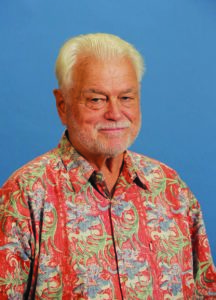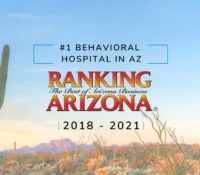By Ralph H. Earle, PhD, LMFT, ABPP, CSAT and Dr. Marcus R. Earle, PhD, LMFT, CSAT A wise man once said “Life is Difficult” (Scott Peck, The Road Less Traveled)....


By Ralph H. Earle, PhD, LMFT, ABPP, CSAT and Dr. Marcus R. Earle, PhD, LMFT, CSAT
A wise man once said “Life is Difficult” (Scott Peck, The Road Less Traveled).
It is reasonable to assume, therefore, marriage is difficult. In Ralph’s former life he frequently spoke at meetings and asked if any couple, married more than a year, found it easy to have a meaningful marriage and if so to come up and share with the group. Not once did a couple take him up on his invitation.
After Glenda and Ralph turned over leadership of the communication skills group at PCS, Marcus and Robin began leading it. While those evenings where fun and meaningful, they continued to offer a reminder that even something as straight forward as communication proved an incredibly difficult undertaking within the context of a marriage.
Ralph and Glenda married over 62 years ago and Robin and Marcus have been married for over 37 years. Although each couple brought their hopes and dreams into their new commitment to one another, similar to most young marriages, it was not long before it was evident they were not emotionally ready to marry.
Hitting the Wall
It is safe to say, after nearly a 100 combined marital years, our marriages have been a work in progress. Like so many, we carried forward our similarities and reactive differences from the previous generation and developed ruts along the journey. Predictably, each “hit the wall.”
These are experiences relationships discover the commitment each individual has to their own personal growth and to one another. One rut Ralph and Marcus each fell into was workaholism and the resulting preoccupation and entitlement that results from it. In turn this left their wives and children with less of them and reflected as what Ralph likes to call our intimacy disabilities.
We have learned through personal and professional experience that heterosexual or same sex couples who commit to a lifetime together owe themselves and one another the opportunity of becoming intimacy abled.
Following are each of our perspectives
Ralph first shares: What I call the “PCS Page” is hoping that couples do not get divorced or do not stay married for the wrong reasons. A great question for couples is “have you had any fear lately?” We are biased in that we would like to help two individuals, whether heterosexual or same sex marriage, learn how to communicate in a way that they are able to give their marriage the best shot.
Our National divorce rate shows us that most of the time couples give up without really doing what they can to improve things. The “change first principle” provides that ‘I become, in my marriage, a person who is a good deal to be married to and find out what my partner does’.
The “nice guy/nagging b—h syndrome.”
Over the years there have been so many understandings of what can go wrong in coupleship. “If it weren’t for you, we would have a good marriage.” In the 1960’s, one author called it the “nice guy/nagging bitch syndrome.”
The nice guy could be male or female. The nagging bitch could be male or female. So many times we see couples where one person acts very nice and impresses everybody, frequently including his or her own family and is a tough person to be married to because of frequently being condescending or proving that he or she is “right.” Many times marriages fall apart because someone is able to prove “I was right” with facts. By “being right” and making that a meaningful criterion for marriage, things fall apart.
I frequently ask people would you rather “be right” and get a divorce or be more “flexible” and create understanding? It doesn’t take a marriage therapist to understand that if one person is proving that he or she is right and is defensive about it, that this will lead to a defensiveness on the part of the other person.
Codependency
Codependency was true in our marriage. My wife was codependent to me in a way that was harmful for her. When she got her voice, which is very strong (partly due to my causing pain to her and to me) she fired that side of her. At times I ask her would you just be codependent for a while because it feels so good to be nurtured in an unhealthy way.
Most of us did not have intimacy role models when it comes to parenting from our own parents. Thus, learning how to parent ourselves, how to be a good deal to be married to, how to be an effective parent are tough and very learnable skills.
Most couples quit dating when they get married. One of the areas where we frequently encourage couples is to learn how to be silly again, to play, to be what Marilyn Murray calls the “original child.” When the original child in each person in a marriage connects, the connection is frequently healing. Humor is therapeutic. My wife frequently laughs at me — actually, she’s laughing at the parts of me that are very laughable, even to myself.
I am reading a book by Barack Obama called A Promise Land and I am reminded of his statement “Yes, we can.” Well, yes we can, meaning most of us can be a better deal in a marriage and most marriages have the ingredients to be much better when the recipe is changed. The good news is that we can change the recipe in our marriages. For example, we can establish Co-CEOs with each individual being the CEO of his or her own life and a Co-CEOship in the marriage.
I am writing this on the day before my wife’s 84th birthday. For me to be smart in my marriage, I’ll quit using the four-month window of opportunity to say to others, I am married to an older woman. For some reason that does not seem to help our marriage. I have learned to say, when it is just the two of us together at times“ shut up Ralph” out loud because what I am about to say would highly likely be destructive and I would be the one more nuked by that than she. That’s pretty dumb — not using my “wise mind.”
Marilyn Murray, who has such an influence in many of our lives, came up with the “Circles of Intimacy.” I remember that when my wife and I were newly married she told me that she wanted to be cherished by me. I have known for many years that her request was fair, but what I actually cherished was external validation both personally and professionally. My number one Circle of Intimacy was external validation instead of understanding that “success is an inside job.”
At PCS we ask couples to go to Build-A-Bear and each one builds a bear that represents their “inner child.” They then carry their bears to each session. We often have the bears of partners talk to each other and it is amazing how that can help with connection and intimacy.
Years ago I was a speaker, along with Tom Harris, who wrote the book I’m Ok, You’re Ok. It is painful now to have the realization that I came across, at times, as if I’m Ok and Glenda not as Ok. It is a big deal to have an adult to adult relationship instead of a parent-child relationship. Most of the time when we see couples who are already married, we call what we are doing premarital therapy because now it is clear what hasn’t worked. In premarital therapy it becomes very important that each one of us “rat” on ourselves – i.e., become familiar with what makes “me” tough to live with. One of our favorite questions is “what makes you tough to live with?” When somebody says I don’t think there is anything that makes it tough to live with me, which has happened, you can imagine how that is harmful to a prognosis of any change in the relationship.
“I frequently ask people would you rather “be right” and get a divorce or be more “flexible” and create understanding?”
— Dr.Ralph Earle
What are your values?
A favorite term of mine in recent years is what I call “enlightened selfishness.” Since I am married and I know I would rather be married than not married and I am married to the person I would like most to be married to. My behavior is shaped by Glenda’s and my needs and wants. Her behavior is also shaped by her and my needs and wants.
One of the major facets of couples’ therapy is to have value clarification. We have the opportunity to ask the question “what are your values?” Most of the time, down deep, the value is, if married, to be monogamous, including many people who are not monogamous.
Those of us who work in the addiction world are very clear what hitting the bottom means. When there is enough of a bottom in the coupleship that both people say the way the marriage is now, the marriage does not make sense, helps the prognosis of the two people being able to improve things.
All of us can learn to communicate better. Through our ITP (Intensive Therapy Program) at PCS we help couples learn how to communicate better. Change in the behaviors of coupleship is necessary for there to be no lying on the part of one partner to the other.
In The 10 Commandments of Couples, one of the writers offers how we can be mentors to each other in a coupleship. Something to ask yourself is to ask yourself is what can be learned from your partner that would make you a better partner and what can your partner learn from you. Remember, you cannot be your partner’s therapist.
In the book Come Here Go Away, I mentioned a story when Glenda and I attended a wedding performed by a Catholic Priest and Baptist minister. There were three candles on the altar and the Baptist minister had the couple take the two candles and light the center one and then said you two are “becoming one” and had them blow out the outside candles saying that they are no longer individuals. I whispered to Glenda, “I think that he may be drumming up business for PCS” even though there is a biblical phrase of “two becoming one.” It is incredibly important that all of us in our marriages remain individuals in a healthy marriage that is mutually need satisfying.
Marcus
Time and experience teach; our responsibility is to notice. The more demanding element is taking the lessons and working with them. In working with them we deepen our understanding of self and how we present ourselves to our loved ones. A committed relationship, especially marriage, holds the unique and powerful opportunity for personal growth. Personal growth is often lost in the desire for relationship growth. A narrow focus on relational growth often leads us to focus on other and thinking, if they would only change our lives together would be so improved.
It has been my experience, until I was willing to face myself, my marriage to Robin would continue to frustrate and hurt her. I knew early in our marriage I struggled to connect and carried a deep well of loneliness. Over the last number of years, I have discovered my loneliness served to distract me from my shame, the fear I was not enough and ultimately would fail Robin and our children. I worked to keep this vulnerability hidden by working, shutting down, managing/controlling, judging, anger, gaslighting, addiction, and impression management. It has taken a board complaint, stroke, death of Robin’s mother, courageous and honest communication from our children, conflict with my parents to shake me to my core. These experiences prompted me to resume my journey of becoming the man, husband and dad I have always longed to be. As I have begun to embrace the parts of me that have been wounded and learned to protect, it has created space to begin the repair process within myself and with Robin and our children. Willingness to grow has created increasing vulnerability, intimacy, trust and connectedness.
We hope sharing our experience and perspective encourages reflection on your own personal journey in your current or past committed relationship.
About the Authors
Ralph Earle, MDiv, PhD, ABPP, LMFT, CSAT is the Founder and President of Psychological Counseling Services, Ltd. He is also a noted family therapist and psychologist, author, and lecturer. He holds a PhD in in Pastoral Psychology, MDiv, Nazarene Theological Seminary, Clinical Pastoral Education Double | BA in Sociology and BA in Speech. Ralph Earle’s therapy focus is on Sexual Problems and Trauma
Marcus Earle, PhD, LMFT, CSAT, S-PSB, is the clinical director at Psychological Counseling Services, Ltd while specializing in working with addictions and sexual offenders, as well as doing individual and family therapy. He has a PhD in Marriage and Family Therapy, MS in Marriage and Family Therapy, BA in Psychology. Marcus Earle therapy focus is on addictions and sexual offenders, as well as individual and family therapy. Dr. Earle co-leads compulsivity and codependency groups and conducts couples communication workshops and marital and family enrichment programs.
You can learn more about PCS by visiting https://pcsintensive.com, calling 480-947-5739 or email [email protected].
Publisher’s Note
I want to thank two of my favorite people, Drs. Ralph and Marcus Earle for sharing their insights and Reflections and Experiences on Committed Relationships. Whether they know it or not, both have helped me navigate through some difficult times after the loss of my husband Bill. Just knowing we have support and trust in others is one of the many gifts of healing. Thank you both!
As April is recognized as Alcohol Awareness month, I am reminded how far we have come, compared to the years when I was growing up in an alcoholic environment. No one talked about this disease at our family meals. The elephant was in the room with us in plain sight.
Alcoholism, from my perspective was considered shameful and something to be hidden, especially if the person suffering was female. My mom had the disease and I witnessed what it can do to a family. Thankfully she found sobriety – and around the time she put down the bottle, I picked it up. I had a 24 year battle, knowing all along I was sick. I was also too scared to admit it, to full of shame, remorse and guilt to do anything about it until the magical moment when I hit my rock bottom. As hard as that fall was, I wouldn’t change it for the world. Life in sobriety and recovery is not a straight line, and even with all the zigging and zagging, gains and losses, sadness, pain, joy and laughter—I’m grateful every day to wake up sober, count my blessings, ready to open my heart and mind and share my experiences and offer someone else hope.
Happy spring




























